Corpus ID Odds Versus Probabilities for Categorical Events @inproceedings{Hazard1973OddsVP, title={Odds Versus Probabilities for Categorical Events}, author={Ted H Hazard and C Peterson}, year={1973} }Probability of Winning = () or % Losing = () or %Probability and Order Versus Evolution One of the strongest direct evidences for special creation is the existence of innumerable highly complex systems in the universe, systems composed of components occurring in a pattern of "order" rather than disorder Creationists maintain that highly ordered systems could not arise by chance, since

How To Calculate Odds 11 Steps With Pictures Wikihow
Are odds and probability the same
Are odds and probability the same-Gambling Odds Versus Probabilities In gambling, the odds on display do not represent the true chances that the event will occur, but are the amounts that the bookmaker will pay out on winning betsIn formulating his odds to display the bookmaker will have included a profit margin which effectively means that the payout to a successful bettor is less than that represented by the true chance Odds, on the other hand, are a measure of chance that cannot be mathematically calculated, per se The odds of a particular event occurring is more a measure of chances for the event happening to the chances of the occurrence not happening –that is, (chances for)
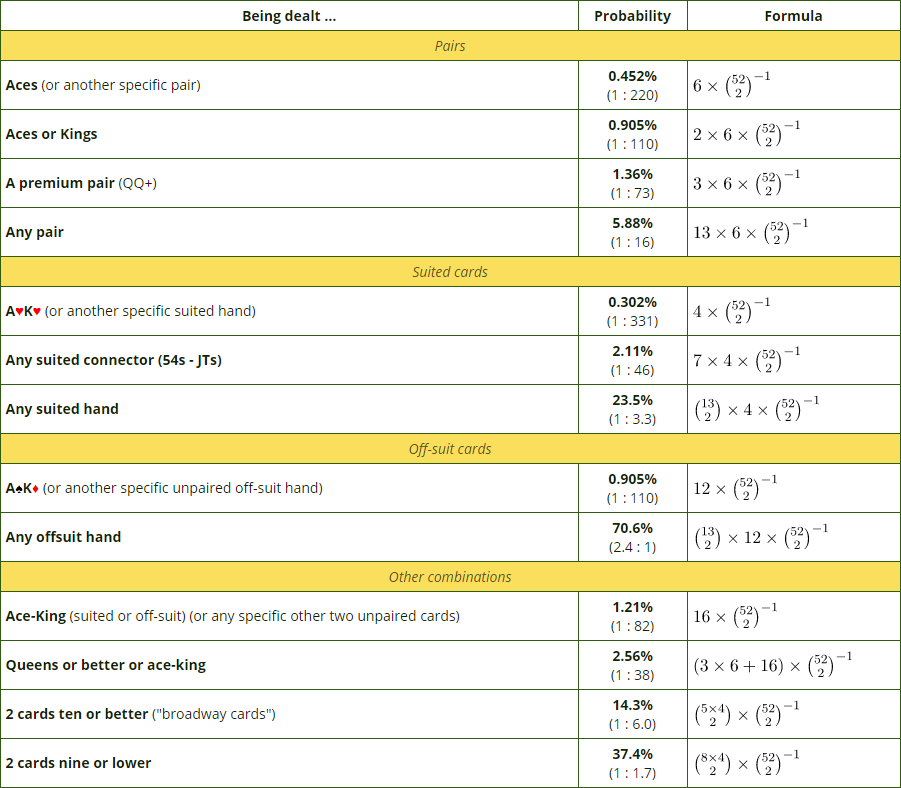



Texas Hold Em Poker Odds Over 100 Poker Probabilities
Each outcome of an experiment or a collection of outcomes make an event If each outcome of an experiment has an equal chance of occurrence then these outcomes are equally likely As in the example of rolling a die the chances of occurrence of numbers among 1 to 6 are equally likely Probability FormulaThis article takes issue with propositions tendered in Roncek (1991) regarding the definitions of odds and odds ratios, the interpretation of the partial slope, and an emphasis on using predicted probabilities to convey the impact of categorical predictors in logit analysis This article correctly defines odds and odds ratios, provides the correct interpretation of the partial slope, andForeign Odds ratio Std err z P>z 95% conf interval price 310 0002 weight
Labs(title ="probability versus odds") 000 025 050 075 100 0 50 100 150 odds p probability versus odds Finally, this is the plot that I think you'llfind most Odds are expressed in several ways (see below), and sometimes the term is used incorrectly to mean simply the probability of an event Conventionally, gambling odds are expressed in the form "X to Y", where X and Y are numbers, and it is implied that the odds are odds against the event on which the gambler is considering wageringGambling Odds Versus Probabilities In gambling, the odds on display do not represent the true chances that the event will occur, but are the amounts that the bookmaker will pay out on winning bets In formulating his odds to display the bookmaker will have included a profit margin which effectively means that the payout to a successful bettor is less than that represented by the true chance
What many people do not realize is that odds such as these are really just a restatement of the probability of an event Probability compares the number of successes to the total number of attempts made The odds in favor of an event compares the number of successes to the number of failures Odds can be expressed as a ratio of the probability an event will happen divided by the probability an event won't happen Odds in favor of A = A / (1 A), usually simplified to lowest terms, For instance, if the probability of an event occurring is 075, then the odds for it happening are 075/025 = 3/1 = 3 to 1 for, while the probability that it doesn't occur is 1 to 3 against In Texas Hold'em, poker odds are THE probability tool you need as a poker player In fact, you should always be thinking about poker odds yours and your opponents' when making decisions In short, poker odds is the probability of you winning that hand, or the price it offers (pot odds)




E Birbeck 7 04 Simple Probability Definition Probability The Chance Some Event Will Happen It Is The Ratio Of The Number Of Ways Ppt Download




Probability Vs Odds In Favour Or Against An Event Examples Youtube
Convert betting odds to probability Now we want to see what those odds mean in terms of probability There is another simple formula that takes the numbers in a Probability to Odds Calculator More about the Probability to Odds Calculator so that you can better understand the elements used in this calculator It is common0609 Odds versus Probability Odds is less intuitive than probability"chances of so many outcomes, in so many outcomes" refers to probability – the number of (equally like) outcomes in favour relative to theThe probability of an event is different, but related, and can be calculated from the odds, and vice versa The probability of rolling a 5 or 6 is the fraction of the number of events over total events or 2/(24), which is 1/3, 033 or 33%




Lecture 38 Monday April 16 12
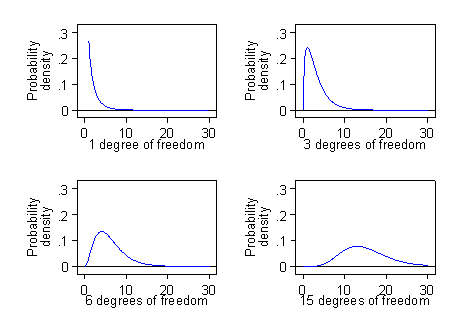



Proportions Chi Squared Tests And Odds Ratios
4 rader The primary difference between odds and probability is that while odds is a ratio ofI show you how to find / write probability, odds in favor and odds against About Press Copyright Contact us Creators Advertise Developers Terms Privacy Policy & Safety How works Difference Between Probability and Odds • Probability is expressed as a number between 0 and 1, while Odds is expressed as a ratio • Probability ensures that an event will occur, but Odds is used to find out whether the event will ever occur



Odds Vs Probability Vs Chance Data Science Central



Ctspedia Ctspedia Oddsterm
Math odds versus gambling odds As far as I remember the mathematical concept odds is defined as the probability something is true divided by the probability that it is not the ratio of the probability that the event will happen to the probability that the event will not happen However, reading about odds in sports gambling, Wikipedia says thisProbability versus Odds A case study While the definitions of these terms can overcomplicate matters, the best way to describe them in action is to look at the coin toss challenge It provides the perfect setting for an explanation of the difference between these two statistical terms because there will only ever be one of two outcomes heads or tails facing the top when the coin lands The odds are defined as the probability that the event will occur divided by the probability that the event will not occur A probability of 0 is the same as odds of 0 Probabilities between 0 and 05 equal odds less than 10 A probability of 05 is the same as odds of 10 Think of it this way The probability of flipping a coin to heads is 50%




Odds Ratio Wikipedia



When Are The Odds Really In Your Favor Huffpost Life
As the word probability sounds a bit too technical, some writers prefer to use a simpler word For instance, we use the more comfortable term "percentage" to represent "chances" as an alternative to probability So when an event A has a 25% chances of occurring, we express the probability as follows P(event A) = 25% = 1/4 = 025Odds and probability is pretty easy! Odds versus probability 27 July 11 By John Robison I absolutely love your column and answers to all our questions It's nice to know there is someone who tells it like it is with no jive one way or the other I would like to know your thoughts on possibility (the odds) vs probability You tell people, rightfully so,




Observed Versus Model Based Left Precipitation Probabilities Right Download Scientific Diagram
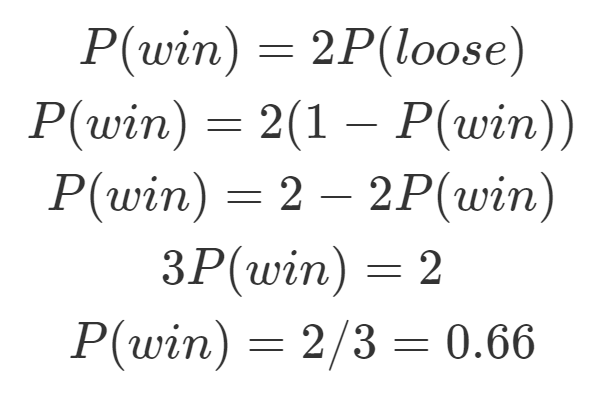



Probability Vs Odds What S The Difference Learn It And By Z Ai Towards Data Science
So a probability of 0 means there's literally no chance of that thing happening, a probability of 05 means there's a 50% chance, and a probability of 1 means that it's certain to happen As you can see, the idea of probability is relatively simple But the idea of odds, on the other hand, is a bit more complicatedmostly because thereOdds and probability can be expressed in prose via the prepositions to and in "odds of so many to so many on (or against) some event" refers to odds – the ratio of numbers of (equally likely) outcomes in favor and against (or vice versa); Odds Odds seems less intuitive It is the ratio of the probability a thing will happen over the probability it won't In the spades example, the probability of drawing a spade is 025 The probability of not drawing a spade is 1 025 So the odds is 025/075 or 13 (or 033 or 1/3 pronounced 1 to 3 odds) Moving back and forth




Betting Odds And Breakeven Probability By Cary Mosley Medium
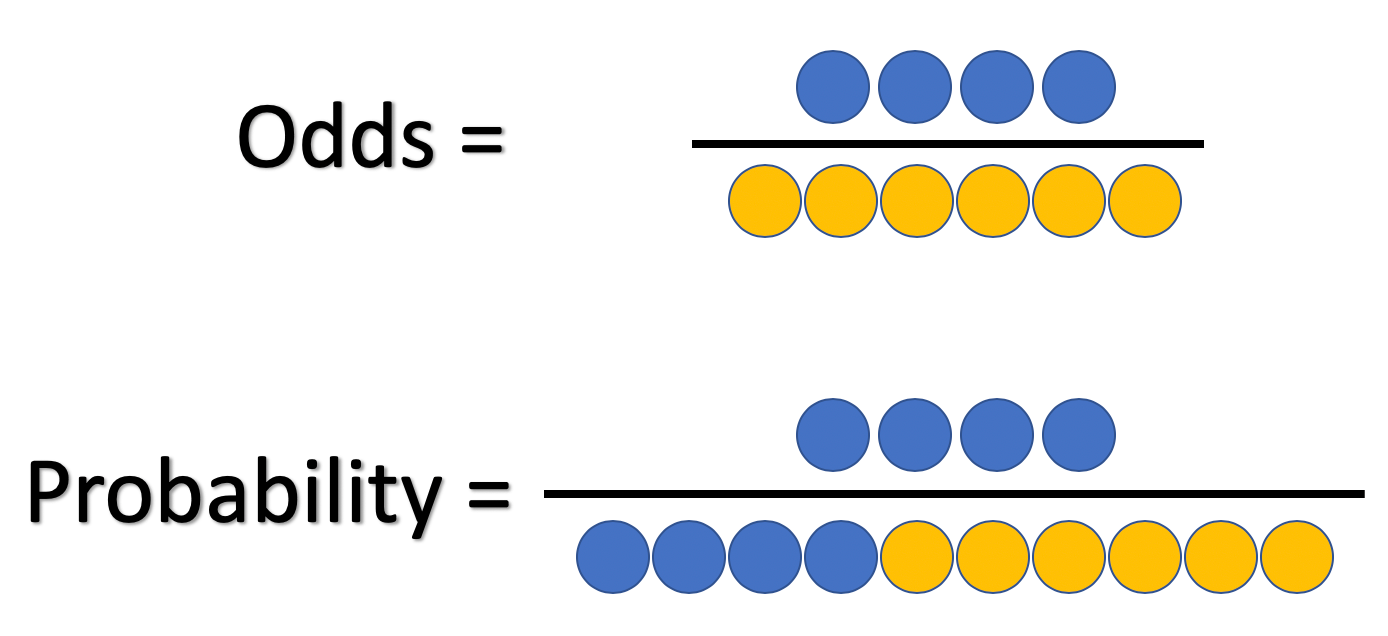



What And Why Of Log Odds What Are Log Odds And Why Are They By Piyush Agarwal Towards Data Science
Probability theory is an interesting area of statistics concerned with the odds or chances of an event happening in a trial, eg getting a six when a dice is thrown or drawing an ace of hearts from a pack of cardsProbabilities are given a value between 0 or 1, where 0 is a 0% chance of the event happening, ie it will not happened, and 1 is a 100% chance of the event happening Dictionarycom defines probability as The quality or fact of being probable A strong likelihood or chance of something The probability of the book's success makes us optimistic • Chance is an everyday word used in a situation where we are talking about an event taking place whereas probability is a precise measurement of that chance • Probability is a special branch of mathematics that helps people decide the percentage of likelihood of an event taking place whereas chances of an event taking place in daily life are merely opinions




Statistics 12 Probability Vs Odds Stats Seandolinar Com




What Is The Difference Between Odds And Probability Statistics Youtube
Odds Is Related to Probability The formal way to describe the odds is as the probability of the event divided by the probability of the nonevent So odds are the ratio of two fractions the number of events divided by the number of subjects (the probability of the event) andOdds versus Probabffities in Logit Equations A Reply to Roncek* ALFRED DEMARIS, Bowling Green State University Abstract Odds vs Probabilities in Logit Equations / 1059 reason for this is that the tangent line at a given point is synonymous with the function itself To transform odds to odds ratios we use p = o 1 o, where p is the probability and o is the odds So in this case the predicted probabilities are 001 1 001 ≈ for nonsmokers and 0015 1 0015 ≈ for smokers This computation was only possible because I had both the baseline odds and the odds ratio Share
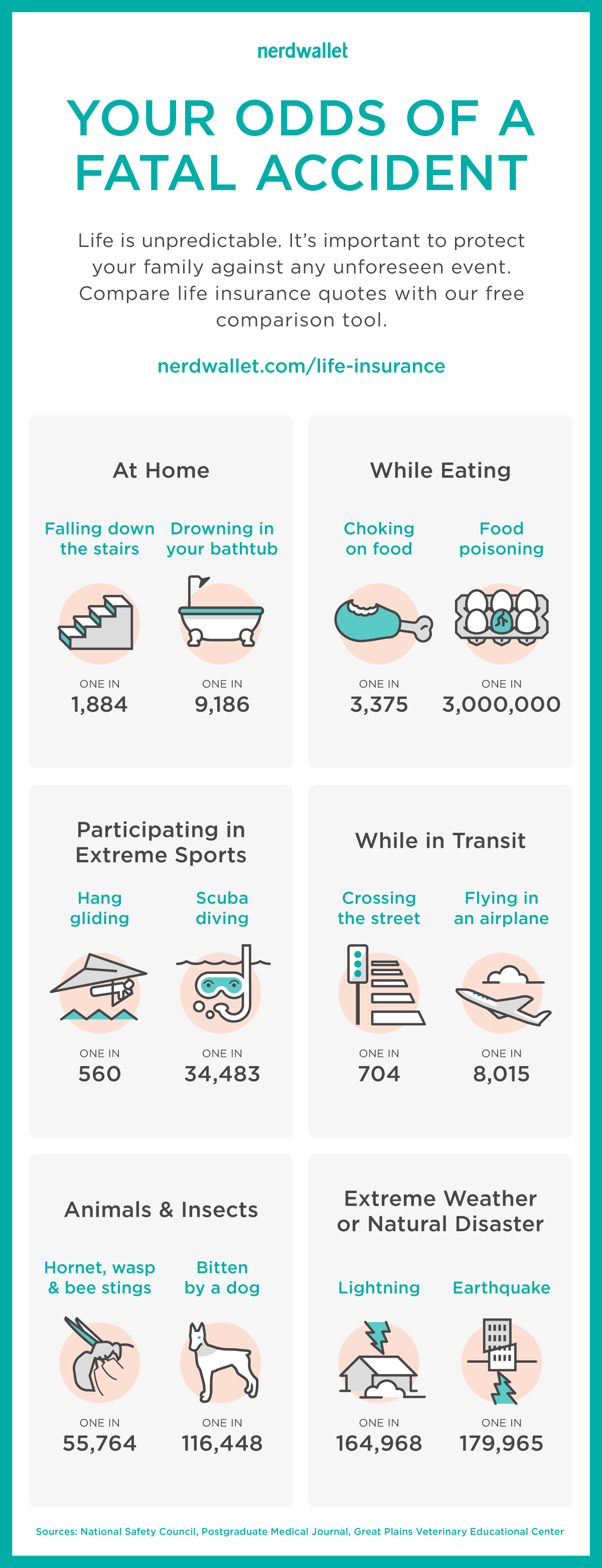



Life Insurance Is No Accident Odds Of Dying At Home More Nerdwallet




Biostatistics Weeks 10 11 Flashcards Quizlet
The Ask Dr Math forum has several entries on odds versus probability Summarizing, one way to conceptualize (nontechnically) the probability of an event is the number of ways that an event can occur divided by the total number of possible outcomes The probability of heads in a fair coin flip is 1/2 (50 percent) Figure2 Odds as a fraction Odds should NOT be confused with Probabilities Odds are the ratio of something happening to something not happeningIn our scenario above, the odds are 4 to 6 Whereas, Probability is the ratio of something happening to everything that could happenSo in the case of our chess example, probability is 4 to 10 (as there were 10 gamesHow to find probability and odds and the difference between the two We also discuss experimental probablility, theoretical probability, odds in favor, and




Pocket Pair Starting Hands Vs Probability Of Opponent Having A Pocket Pair Poker Stack Exchange
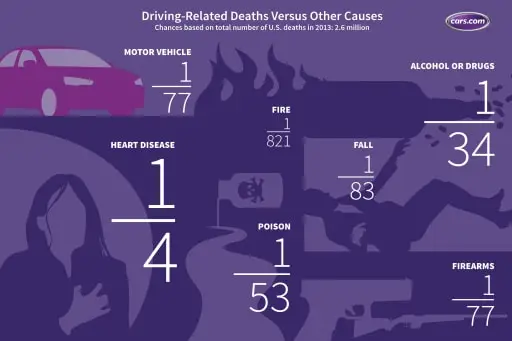



Are The Odds Ever In Your Favor Car Crashes Versus Other Fatalities News Cars Com
Just remember to use a colon instead of a fraction Also, remember that you are comparing the number of ways the outcome can occur to the number of ways the outcome cannot occur (not the total outcomes)Odds are ratios, specifically, ratios of probabilities The units of the odds of an event A (a ratio) are expressed in orders of magnitude relative to event A not occurring Orders of magnitude are not strictly confined to the continuum of the real line in the interval 0,1 Therefore, the scaling of probability, chances and odds are not the sameSuppose we know that the probability of a female getting into a program are p = 7 and q = 1 − 7 = 3 for males Then we know odds ( female) = 7 / 3 = odds ( male) = 3 / 7 =




Probability Vs Odds In Favour Or Against An Event Examples Youtube
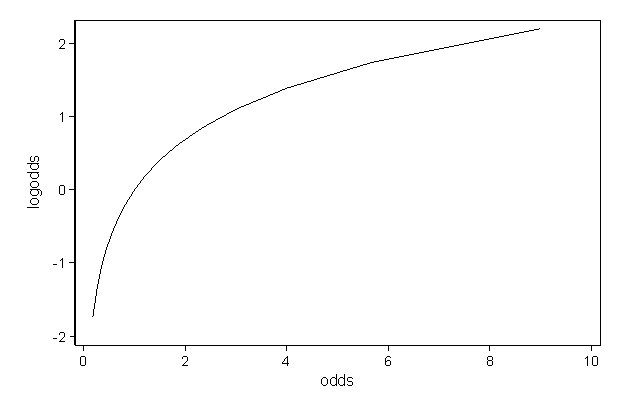



Faq How Do I Interpret Odds Ratios In Logistic Regression
The Difference Between "Probability" and "Odds" If a race horse runs 100 races and wins 25 times and loses the other 75 times, the probability of winning is 25/100 = 0 If the horse runs 100 races and wins 5 and loses the other 95 times, the probability of winning is 005 or 5%, and the If the Odds, on the other hand, are the ratio of favorable outcomes to unfavorable outcomes The denominator contains ONLY the marbles that aren't the favorable outcomes Odds uses the contexts of good outcomes and bad outcomes Written as fractions, these two values are completely different Probability is 1/4 while odds in favor are 1/3The chance of winning is 4 out of 52, while the chance against winning is 48 out of 52 (524=48) Entering A=4 and B=48 into the calculator as 448 odds are for winning you get For 4 to 48 odds for winning;




Probability Vs Odds Youtube
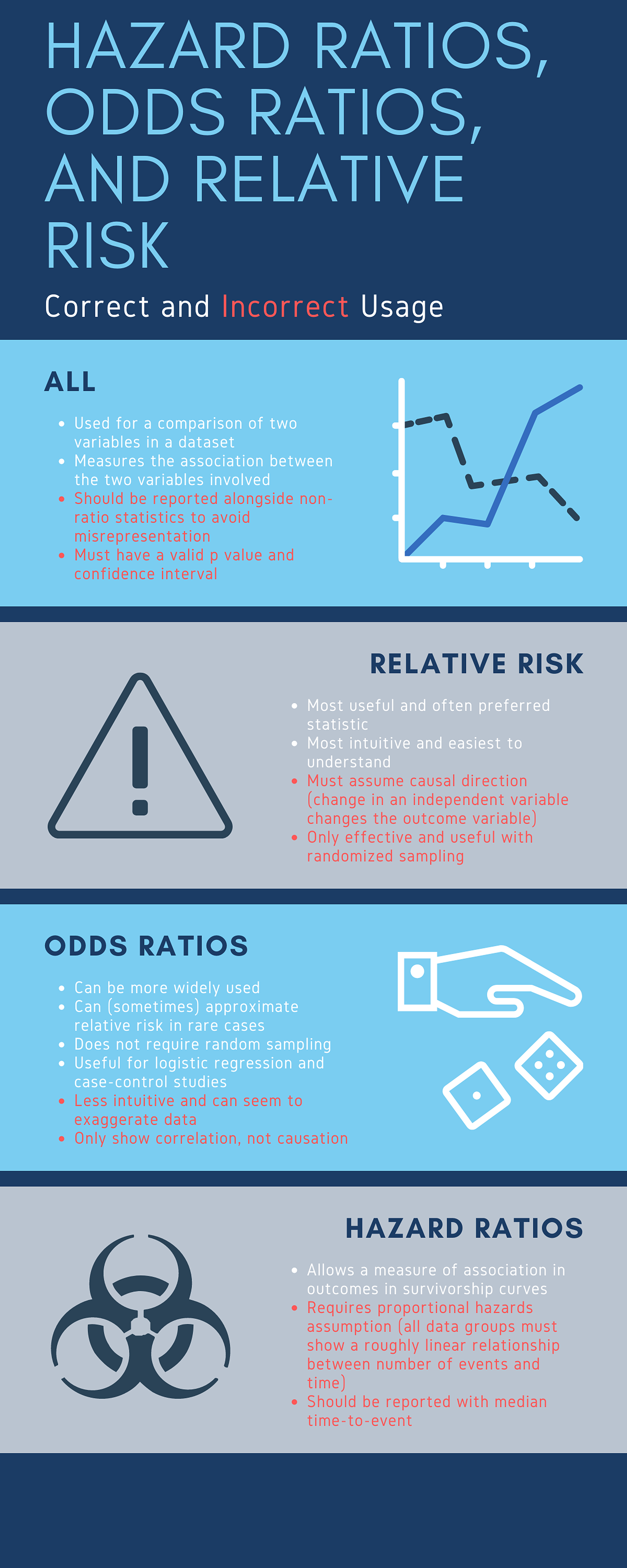



Cureus What S The Risk Differentiating Risk Ratios Odds Ratios And Hazard Ratios
A betting odd opportunity should be considered valuable if the probability assessed for an outcome is higher than the implied probability estimated by the bookmaker Read more on the math behind




Estimates Of Odds Ratios Of Daily Probability Of Diarrhea In The Download Scientific Diagram




10 1 10 2 Probability Permutations Warm Up Ppt Download
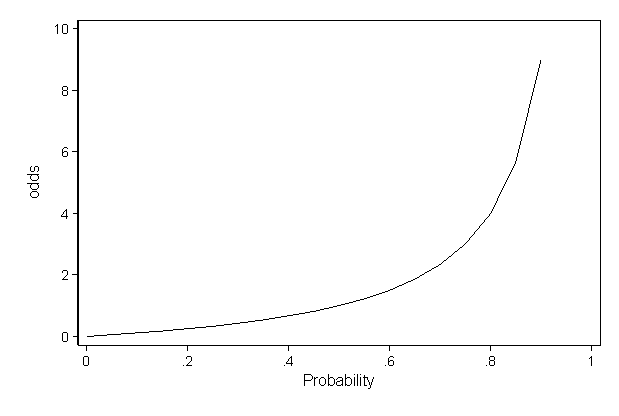



Faq How Do I Interpret Odds Ratios In Logistic Regression
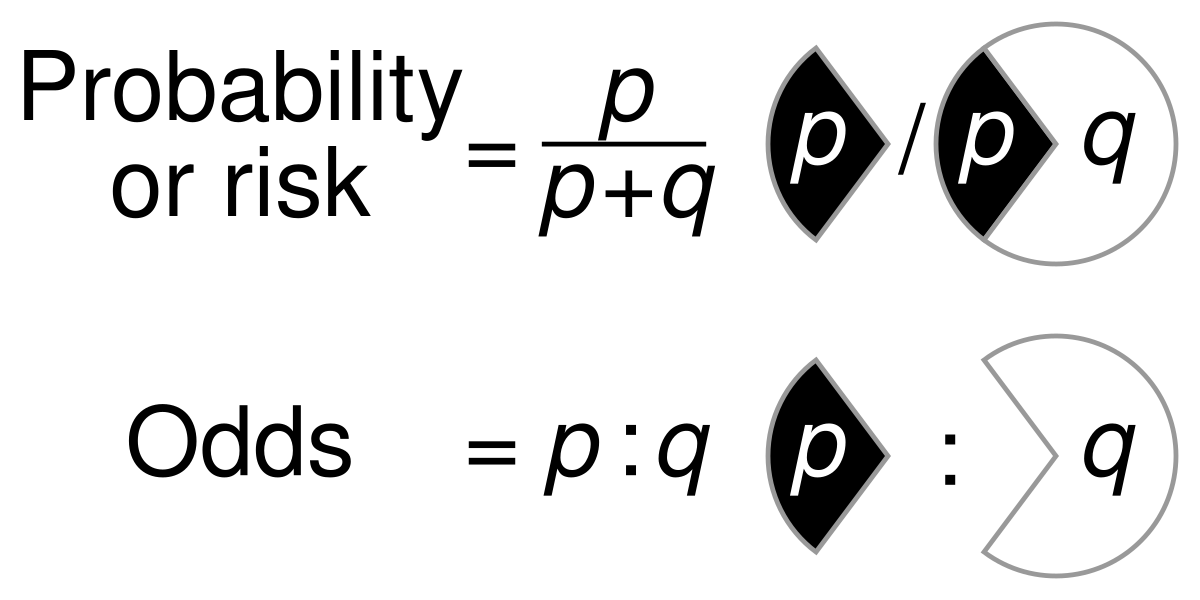



File Probability Vs Odds Svg Wikimedia Commons




Nhanes Tutorials Module 10 Logistic Regression




What Is An Odds Ratio And How Do I Interpret It Critical Appraisal




Odds Probability The Difference Explained With Examples




What And Why Of Log Odds What Are Log Odds And Why Are They By Piyush Agarwal Towards Data Science
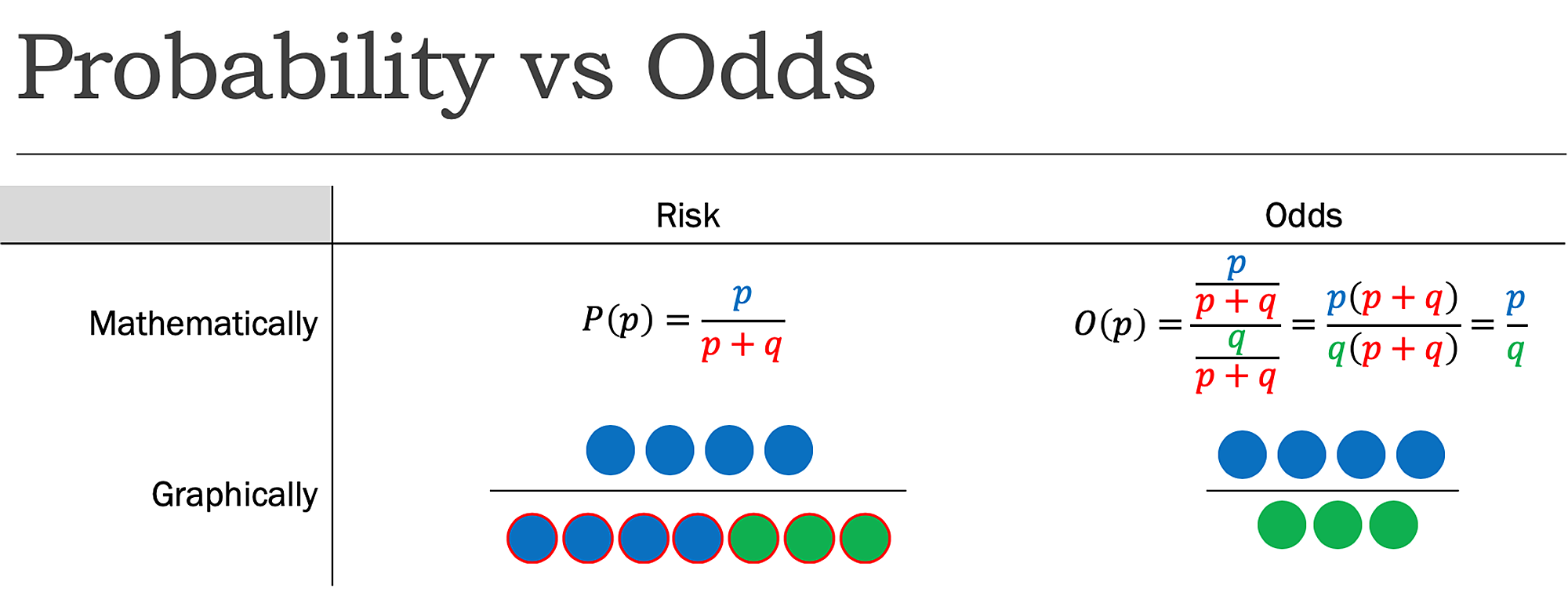



Cureus What S The Risk Differentiating Risk Ratios Odds Ratios And Hazard Ratios




How To Calculate Odds 11 Steps With Pictures Wikihow




Probability Vs Odds What S The Difference Learn It And By Z Ai Towards Data Science




Probability Vs Odds What S The Difference Learn It And By Z Ai Towards Data Science



1




How To Calculate Odds 11 Steps With Pictures Wikihow




True Odds Calculator Find Probabilities Fair Odds Margin
:max_bytes(150000):strip_icc()/expected-5733972a5f9b58723d773687.png)



How Odds Are Related To Probability




Definition And Calculation Of Odds Ratio Relative Risk Stomp On Step1



Logistic Regression
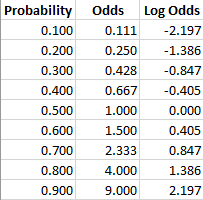



Log Odds Definition And Worked Statistics Problems
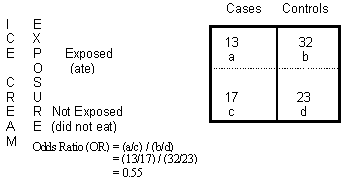



Odds Ratio Calculation And Interpretation Statistics How To
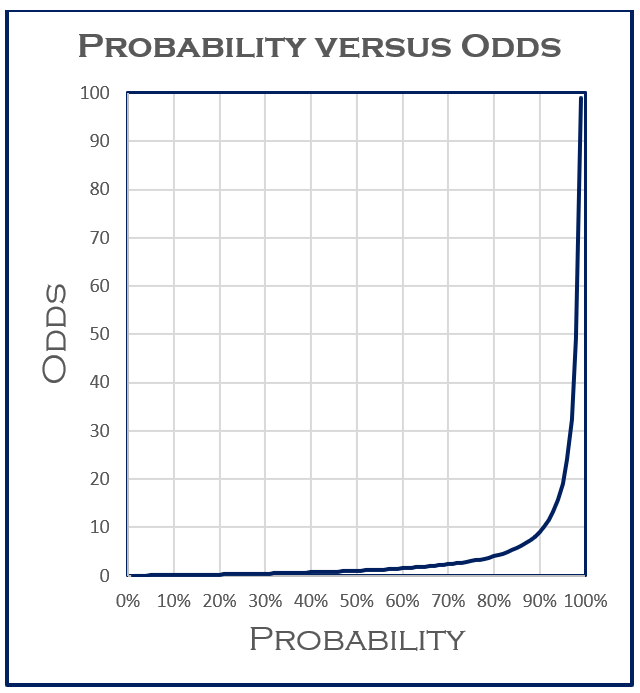



What Are The Odds Stats With Cats Blog
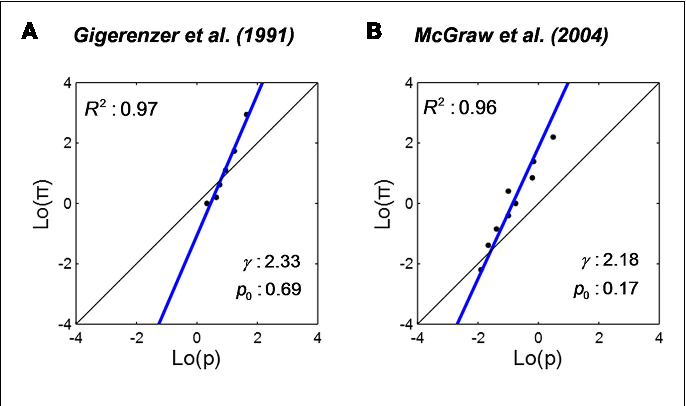



Figure 5 From Ubiquitous Log Odds A Common Representation Of Probability And Frequency Distortion In Perception Action And Cognition Semantic Scholar




Odds Ratios Versus Relative Risk




The Difference Between Relative Risk And Odds Ratios The Analysis Factor




Odds Introduction Arbital
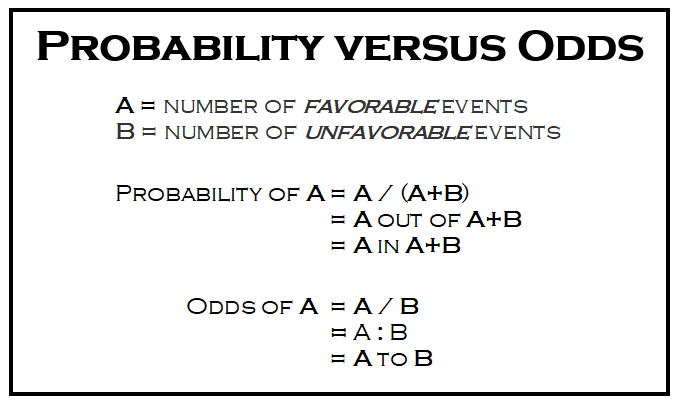



What Are The Odds Stats With Cats Blog




Estimates Of Odds Ratios Of Daily Probability Of Diarrhea In The Download Scientific Diagram




Texas Hold Em Poker Odds Over 100 Poker Probabilities




Binary Logistic Regression With Odds Ratios Calculated For The Download Table




Odds Ratio The Odds Ratio Is Used To Find The By Analyttica Datalab Medium




Ppt Main Points To Be Covered Powerpoint Presentation Free Download Id




Probability Vs Odds What S The Difference Learn It And By Z Ai Towards Data Science




Odds Probability And The Lottery Lotterycodex




Probability And Odds Youtube
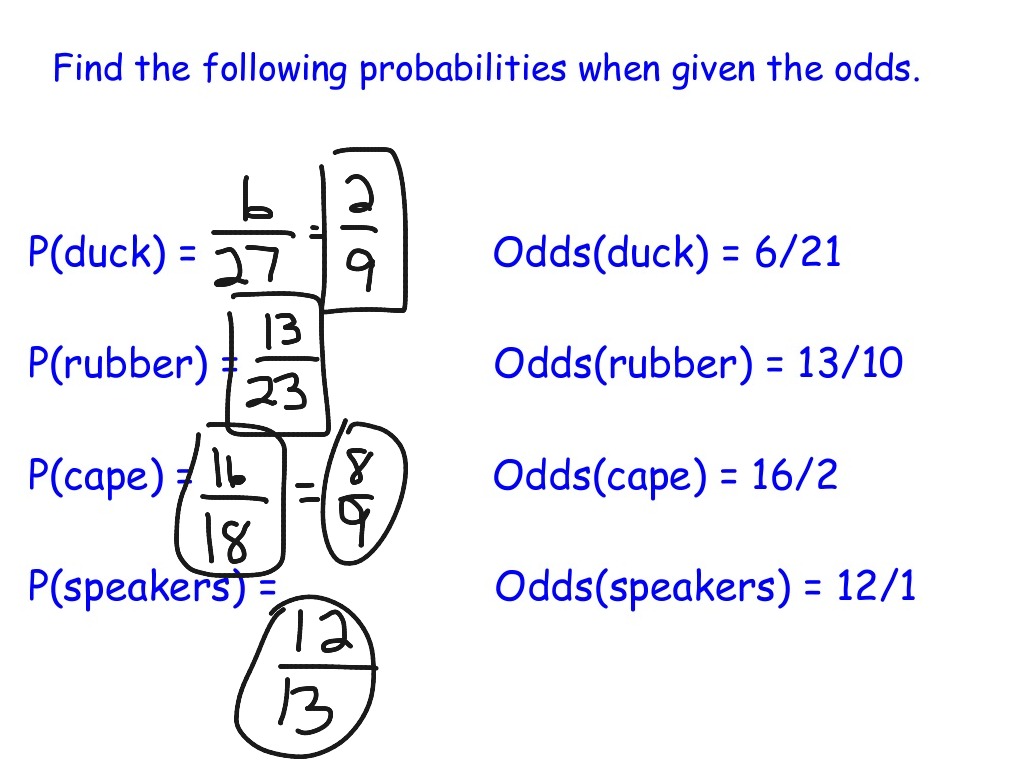



Probability Probability Vs Odds Lesson Math Statistics Showme




How To Read Odds 13 Steps With Pictures Wikihow



Www Jstor Org Stable



Ctspedia Ctspedia Oddsterm
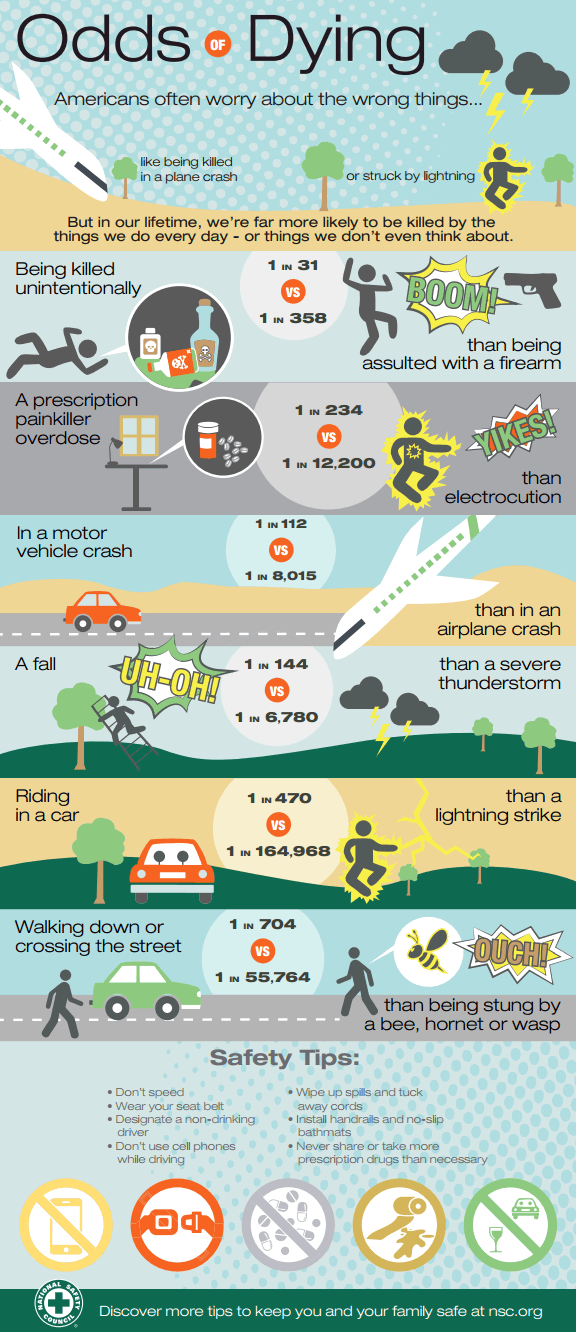



Worried About Dying From Surgery Hurricane Plane Crash Check Out The Odds
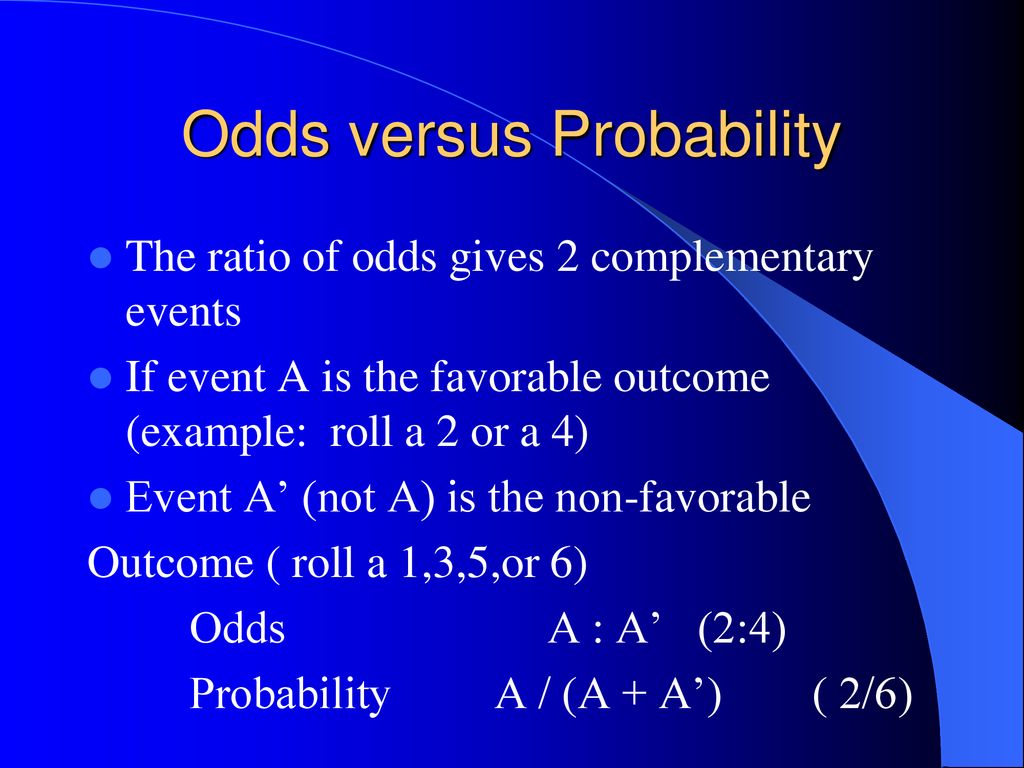



Odds Ppt Download
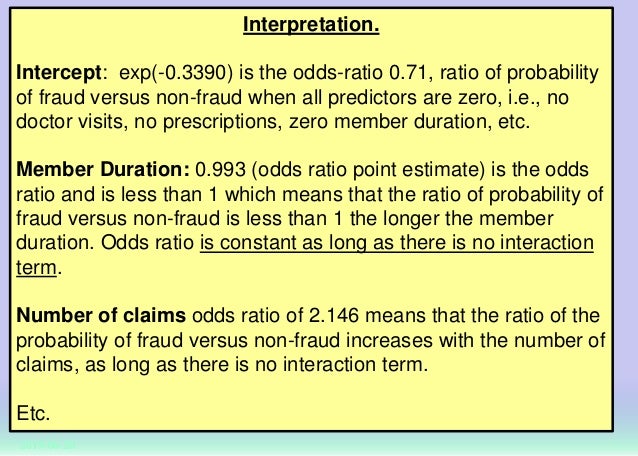



Classification Methods And Assessment
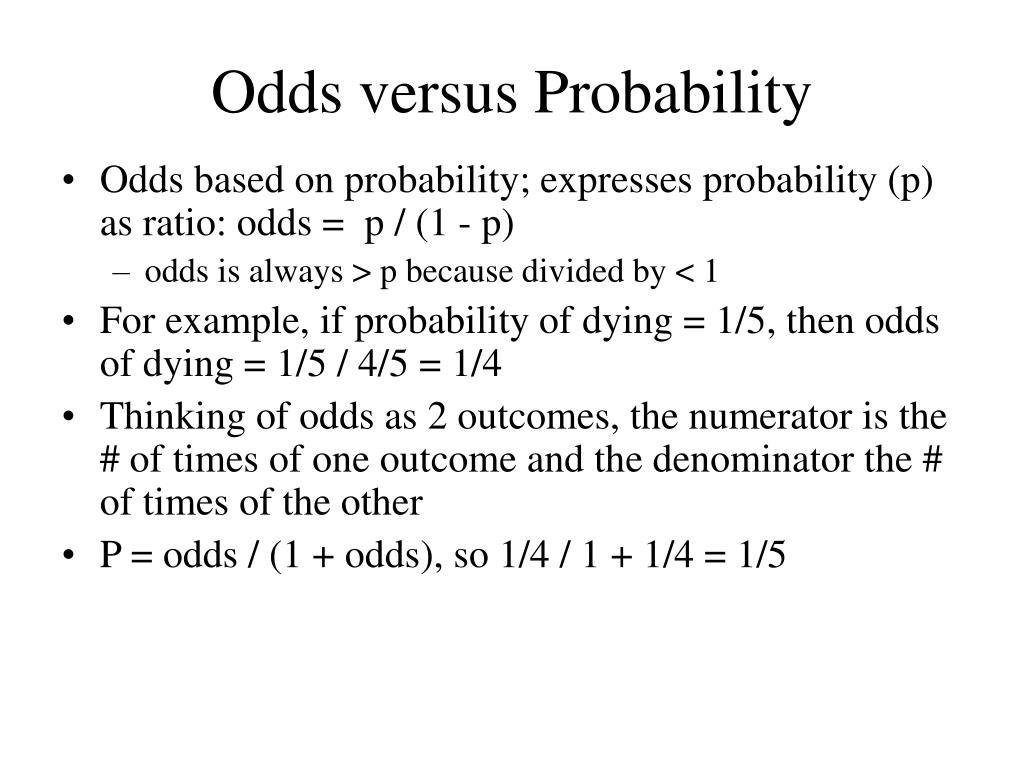



Ppt Main Points To Be Covered Powerpoint Presentation Free Download Id
/CompoundProbability2-9402bf638f6e4da9882dbdbd23dbd918.png)



Compound Probability Definition




Probability Vs Odds What S The Difference Learn It And By Z Ai Towards Data Science



1
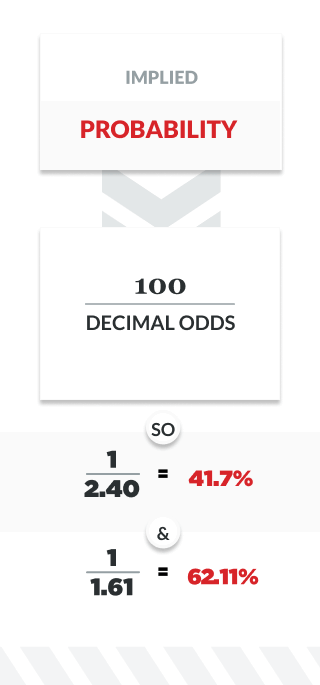



How To Read And Calculate Sports Odds Everything You Need To Know Betting 101




The Difference Between Probability And Odds
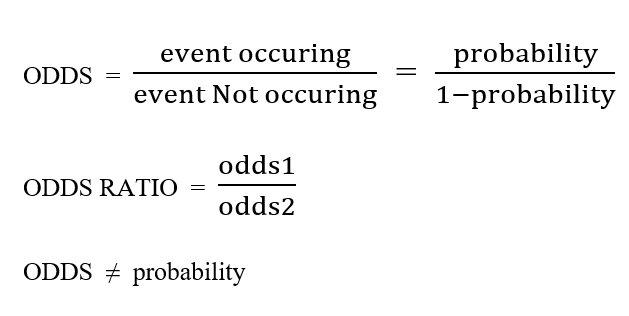



Modelling Binary Logistic Regression Using Python One Zero Blog



Q Tbn And9gctxz8owky Sul84xtk4ggzacxwhkmhguhlxwyjj9avufagdrhwm Usqp Cau



Stanford Edu Class Gene210 Files Lectures 11 4 Salari Analyzinggwasdata Pdf
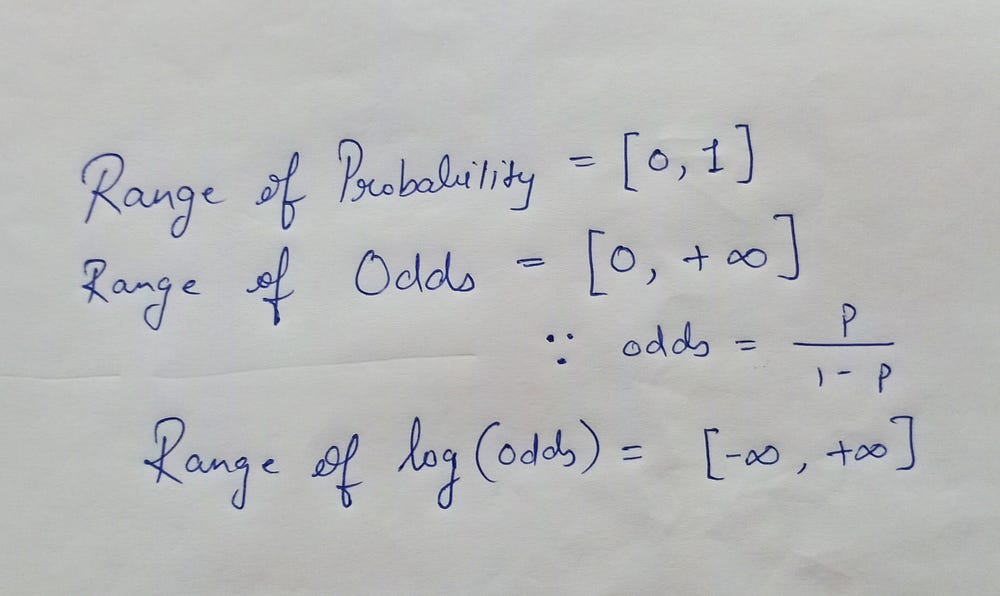



Logistic Regression The Journey From Odds To Log Odds To Mle To Woe To Let S See Where It Ends By Rutvij Lingras Analytics Vidhya Medium




Implied Probability Betting Math Made Simple 21 Update




The Bounded Rationality Of Probability Distortion Pnas




Binary Logistic Regression With Odds Ratios Calculated For The Download Table




Bayes Rule Odds Form Intro Math 1




Los Angeles Clippers Vs Phoenix Suns Game 2 Odds And Predictions Crowdwisdom360
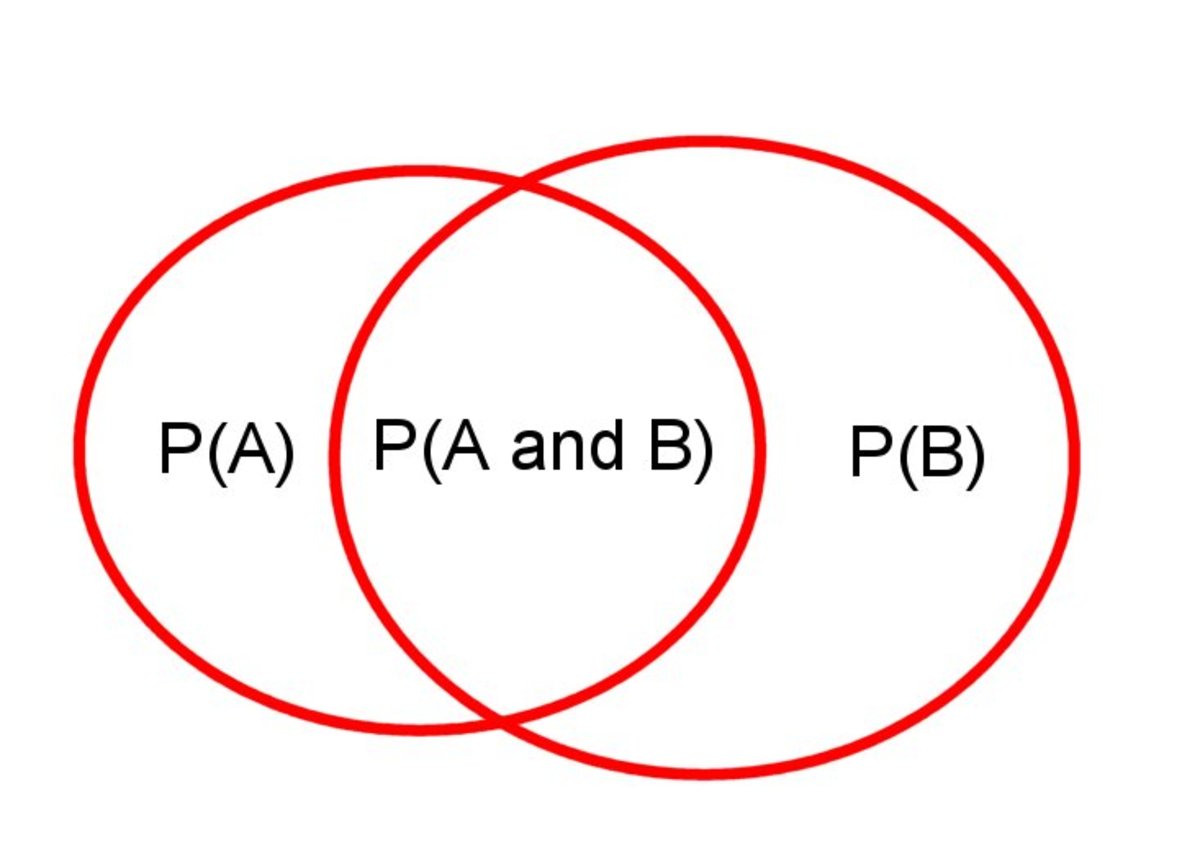



How To Find The Probability Of An Event And Calculate Odds Permutations And Combinations Owlcation




Statistics For Medical Students Geeky Medics




Prove The Posterior Odds Updating Formula For Chegg Com




Comparing Probability Odds For And Odds Against Youtube
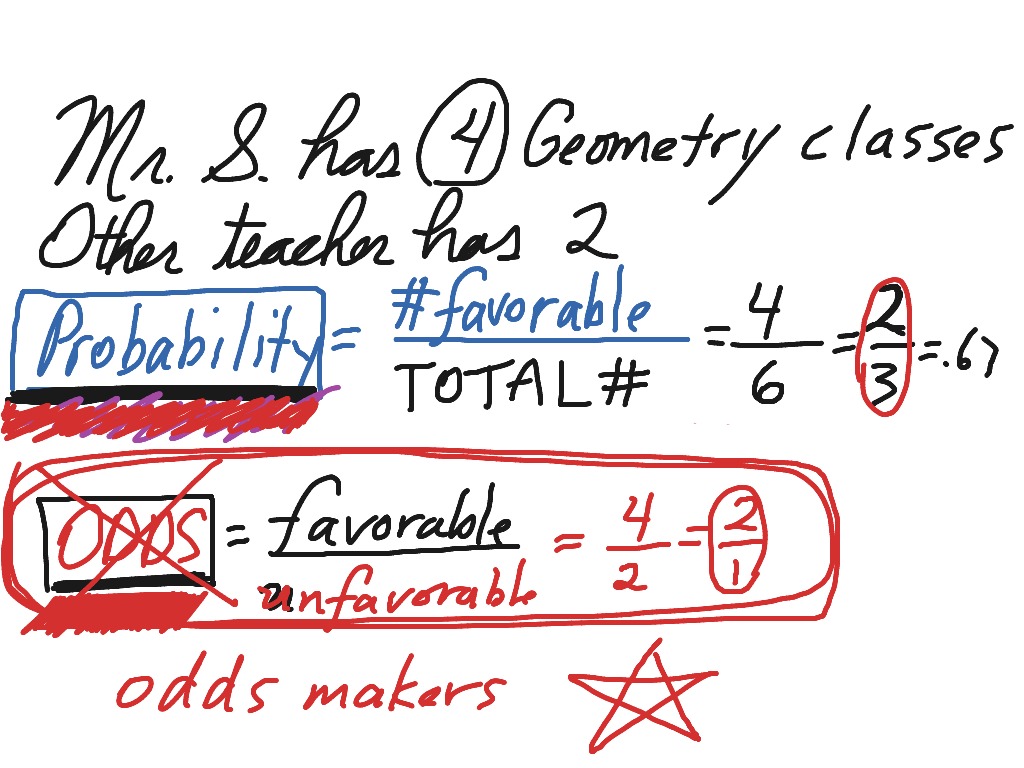



Showme Odds



Definition And Calculation Of Odds Ratio Relative Risk Stomp On Step1
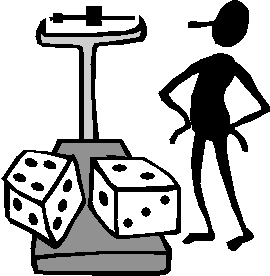



The Difference Between Probability And Odds




Simple Probability Definition Probability The Chance Some Event



Odds Likelihood Ratios Guide To Diagnostic Tests
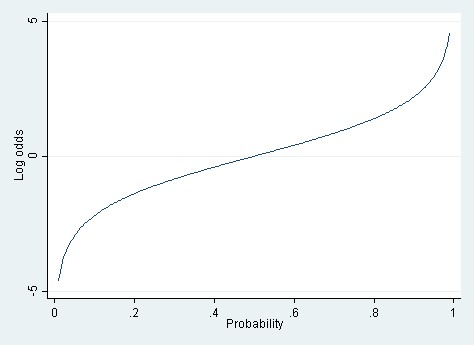



Linear Vs Logistic Probability Models Which Is Better And When Statistical Horizons
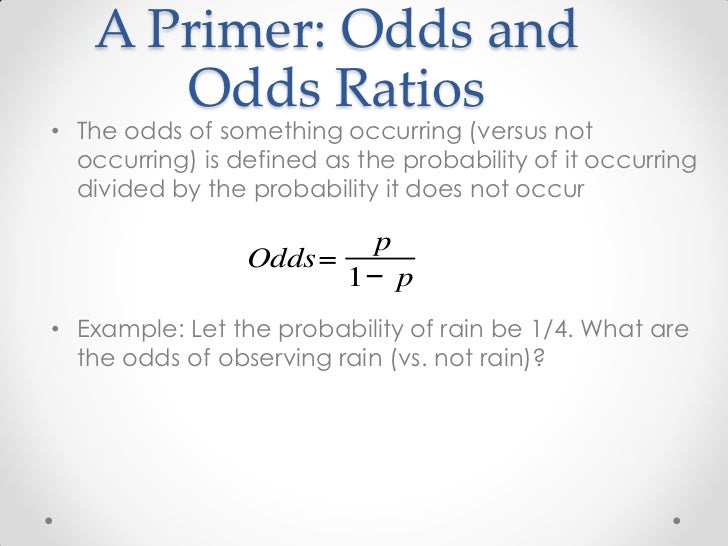



Data Day 12 Barboza Data Storytelling



Odds Likelihood Ratios Guide To Diagnostic Tests




Odds Ratios And Risk Ratios Youtube
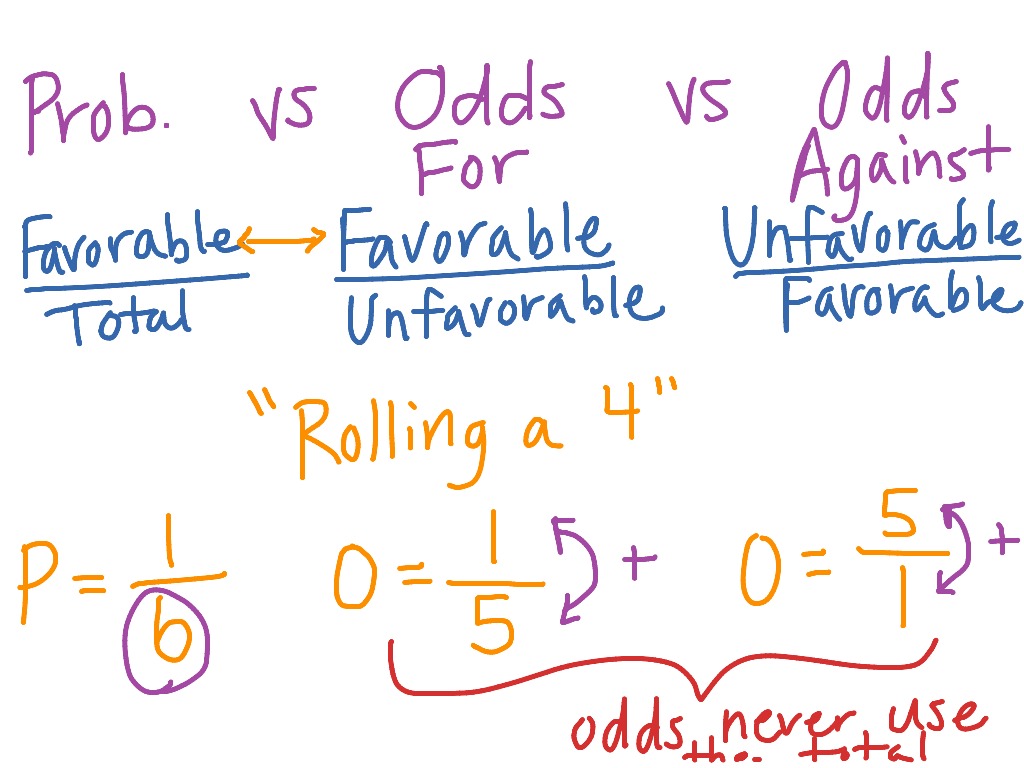



Odds Versus Probability Math Showme




How Sports Betting Odds Work How To Read Odds Explanation Video




What Are The Odds The Annals Of Thoracic Surgery




Definition And Calculation Of Odds Ratio Relative Risk Stomp On Step1




Odds Ratio Relative Risk



1




9 6 Odds To Probabilities 1 If The Odds Of An Chegg Com




Calculating The Odds Of An Event Mathematics For The Liberal Arts




How To Calculate Odds 11 Steps With Pictures Wikihow
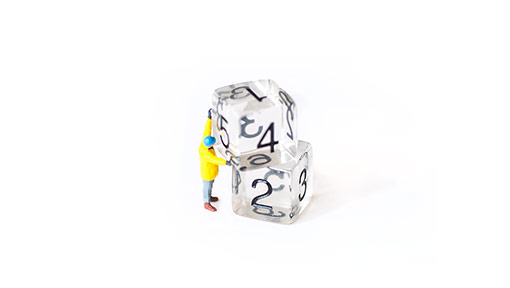



Odds Or Probability Sense About Science Usa
:max_bytes(150000):strip_icc()/dotdash_Final_The_Math_Behind_Betting_Odds_and_Gambling_Nov_2020-01-735accb453c8424b9e063c2c14e4edf4.jpg)



The Math Behind Betting Odds Gambling



The Odds Of Becoming A Millionaire




Math 30 2 Probability Odds Acceptable Standards 50 79 The Student Can Express Odds For Or Odds Against As A Probability Determine The Probability Ppt Download



0 件のコメント:
コメントを投稿